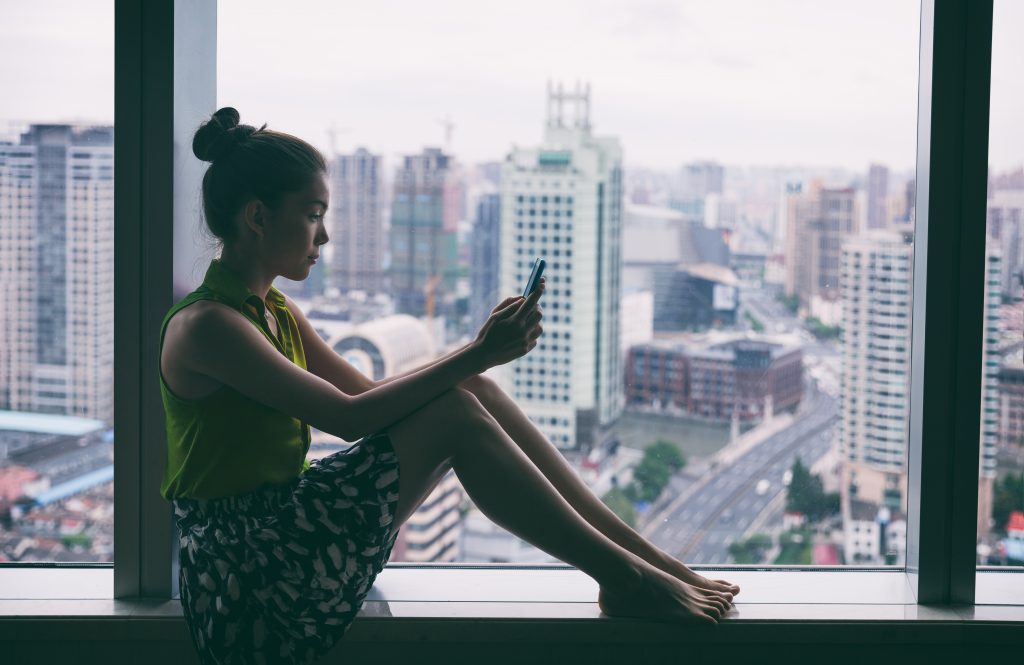
Is Instagram Actually “Friendly”? How Instagram Affects Mental Health
Social media provides people all over the world with a quick and easy way to connect with friends and loved ones. Each year Pew Research Center provides statistics around trends in social media use. The first surveys took place in 2005. At the time, only 5% of American adults used social media programs. Within a decade, that number had grown to 50%. Since that time, thousands of people have signed on to social media each day, and the rate with which American’s of all ages turn to social media to communicate continues to multiply.
A 2017 article in Time Magazine marked Instagram as the “worst social media network for mental health and wellbeing.” This statement was based on a survey of approximately 1,500 individuals (teens and young adults). Although Instagram is not the only social media app used today, it is one of the most popular, but is using Instagram safe for your mental health?
Understanding Social Media
When people think of social media, they often consider the wide range of online programs currently available on most forms of technology. Social media apps are available for download on desktop computers, laptops, smartphones, tablets, and even some gaming consoles. People of all ages use social media apps to communicate, share information such as news or events, and maintain connections and relationships with family and friends across the country and around the world.
The most familiar social media programs are generally popular and easy to access apps like Twitter, Snapchat, Facebook, and Instagram. Social media apps continue to develop and advance. In general, they tend to advance as quickly as the technology required to operate them. A recent survey conducted by Pew Research Center indicates approximately 90% of American’s between the ages of eighteen and twenty-nine use (at least) one social media application daily as part of their routine. It is estimated that more than three billion people worldwide use social media.
Social Media and Mental Health
Social media applications are an easy and convenient way to maintain and grow relationships with friends and family. Due to the “online” nature of social media, these programs allow people from all over the world to quickly and easily share experiences, thoughts, and ideas with each other. These applications provide an opportunity to re-establish friendships and relationships for those who may have lost touch. Social media even allows for ease of operations for small and large businesses whose customer base maybe thousands of miles away. Also, social media enables people of all ages and demographics to be part of social organizations, clubs, groups, and peer support systems, even if other members of the organization itself are not local.
Unfortunately, with good often comes bad, and many of the same characteristics that make social media “good” also contribute to its negative aspects. Social media provides a significant level of freedom and anonymity. There are minimal, if any, checks and balances associated with creating accounts and profiles. For the most part, anyone at any age who understands the basics of computer technology and website access can create a social media account. These freedoms also allow people who are part of social media platforms to post and say virtually anything they want. Although there are some forms of online monitoring, it often takes a while before posts are “taken down” or individuals are “punished” for hurtful or harmful posts.
The level of freedom afforded by social media can lead to dangerous and problematic issues such as stalking, cyberbullying, self-image problems, and a range of other harmful outcomes. These and other challenges frequently encountered on social media can (and do) lead to new or worsening mental health and substance abuse-related issues. This is especially true for adults or teens who may be predisposed to addictive behaviors or have previously diagnosed or undiagnosed mental health issues.
What is Instagram?
While many social media apps are designed around content sharing, including news, articles, and personal posts, Instagram is different. Instagram is focused (almost) entirely on photo and video sharing. Instagram was purchased by Facebook in 2012 and has since grown to nearly one billion registered users. Instagram is not only for use by individuals. A quick search online shows the platform is popular among celebrities, musicians, professional photographers, businesses, and many others.
Initially, Instagram only allowed for content framed in a 1×1 square at 640 pixels. This is because that was the display capabilities of iPhones at the time. Today, these restrictions have been eased, and the app now provides a range of other features beyond a simple, single photo upload. Today people can share messages, multiple images, or videos in a single post and utilize the “stories” feature. Stories allows users to post videos and photos in a sequential feed that is only available for 24 hours.
The content uploaded to Instagram is not necessarily original. One of the perks and pitfalls of Instagram is that users can edit photos and other media uploaded to the app with filters. This alters, sometimes significantly, how the images and content appear to other users.
Instagram and Mental Health
In 2017, the Royal Society for Public Health conducted a survey around social media and mental health. The study asked participants between the ages of fourteen and twenty-four to rate various social media platforms on criteria concerning body image, bullying, anxiety, depression, loneliness, and other critical factors. In the end, the study concluded that Instagram ranked the “worst” social media app for mental health in teens and young adults. Although the survey noted significant negatives to Instagram use, it did note positive aspects as well. Survey participants ranked Instagram in a positive light for factors including community building, self-identity, and self-expression.
In response to the survey, Instagram worked towards improving how the app operates. Instagram has since provided users more control over how and what comments appear on their posts. Beginning in 2016, they announced users could turn off commenting on their posts. Also, they could control the language used in their comments by inputting words or phrases they find vulgar or offensive into their profiles. Instagram will then prevent or ban comments with those words or phrases from appearing in their comment feed. Shortly after comment controls, Instagram provided users the ability to ban or remove specific followers.
After the Royal Society for Public Health survey was released, Instagram provided users with other protective measures in addition to those outlined above. Along with user-initiated content filters, Instagram announced in the summer of 2017 that it would start automatically filtering harassing, bullying, or offensive content. In 2019, Instagram announced a system to proactively detect comments that are deemed offensive and encourage the user to “reconsider” the text of their comment. In the last year or so, the app has introduced an algorithm to suppress “likes” on specific imagery in an effort to limit body image comparisons or body shaming on posted photos.
The Unfriendly Side of Instagram Use
A significant reason behind the continued use of social media is based on how the programs stimulate the minds’ natural reward system. When people receive positive feedback on social media, it stimulates the reward center in the brain, causing it to release dopamine. Dopamine is a naturally occurring neurotransmitter often referred to as a “feel good” chemical. Dopamine is responsible for feelings of happiness and pleasure often linked to regular day-to-day interactions, including social interaction. Social media apps, including Instagram, are designed to feed on the desire to achieve these emotions.
Unfortunately, social media use and interaction do not always stimulate pleasurable emotions. Instagram, like most social media applications, runs on likes and follows. For some, these forms of approval in the social environment verify how much others like their thoughts, appearance, clothing choices, or them as a person. The absence of likes or follows is often viewed as evidence that others in the same social realm do not approve. The reliance on affirmation from others on a social media platform such as Instagram can lead to increased sadness, insecurity, reduced self-esteem, depression, and anxiety from those who may feel inferior to others posting on their social media feed.
Additionally, Instagram can be triggering for some users. If someone sees a series of photos from an event they were not invited to or perhaps images of a trusted friend spending time with others, it can increase anxiety levels. Social media also increases pressure on users to get comments and likes on their posts. Someone who does not receive similar levels of engagement as their friends may feel as though they are not liked.
Reducing the Mental Health Effects of Instagram
Despite research on social media and mental health, there remains little definitive evidence that social media causes mental health challenges. However, there are a number of warning signs that indicate this may be the case. There is also significant evidence of a strong correlation between social media use and the increasing incidence of mental and emotional health struggles for people of all ages. Although not listed in the Diagnostic and Statistical Manual of Mental Disorders (DSM), social media is a genuine mental health concern. Research shows that mental health conditions such as stress, anxiety, depression, and disordered eating can all be exacerbated by social media use.
Seeking treatment for underlying mental health challenges or social media at a treatment center like The Meadowglade can allow you time away from social media. It can also provide an opportunity to learn important skills to help foster secure and healthy face-to-face relationships in the offline environment. Our team at The Meadowglade can work with you to help address the warning signs and symptoms of mental health struggles related to social media use and . To learn more about how you can manage the stress levels associated with Instagram, contact our admissions team today.
https://www.bbc.com/news/health-39955295
https://www.rsph.org.uk/static/uploaded/d125b27c-0b62-41c5-a2c0155a8887cd01.pdf
https://www.wired.com/story/instagram-launches-ai-system-to-blast-nasty-comments/
